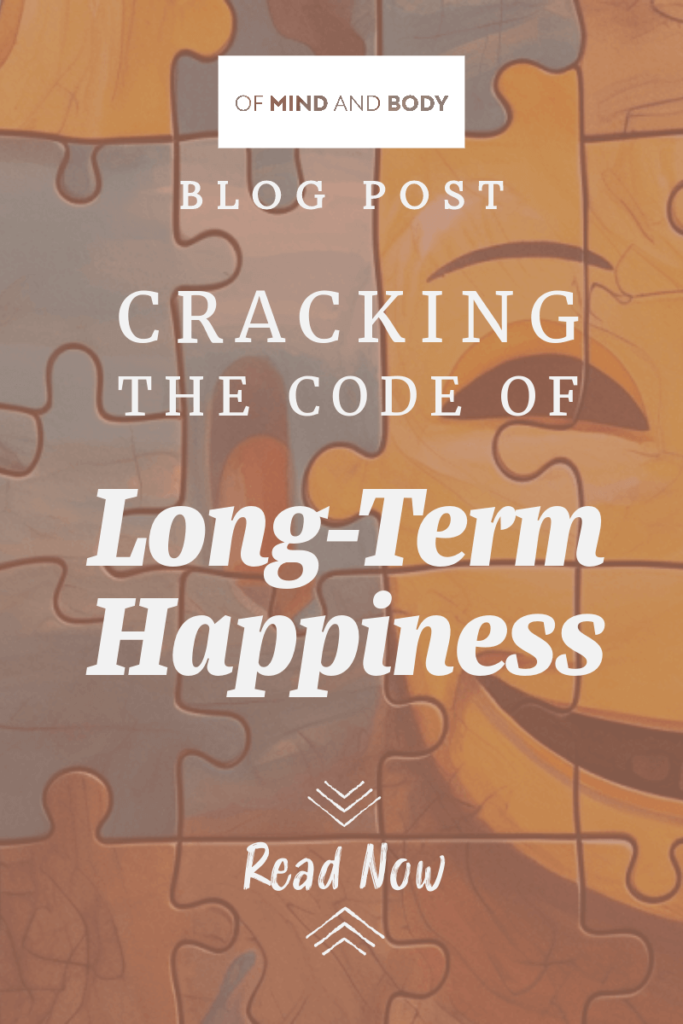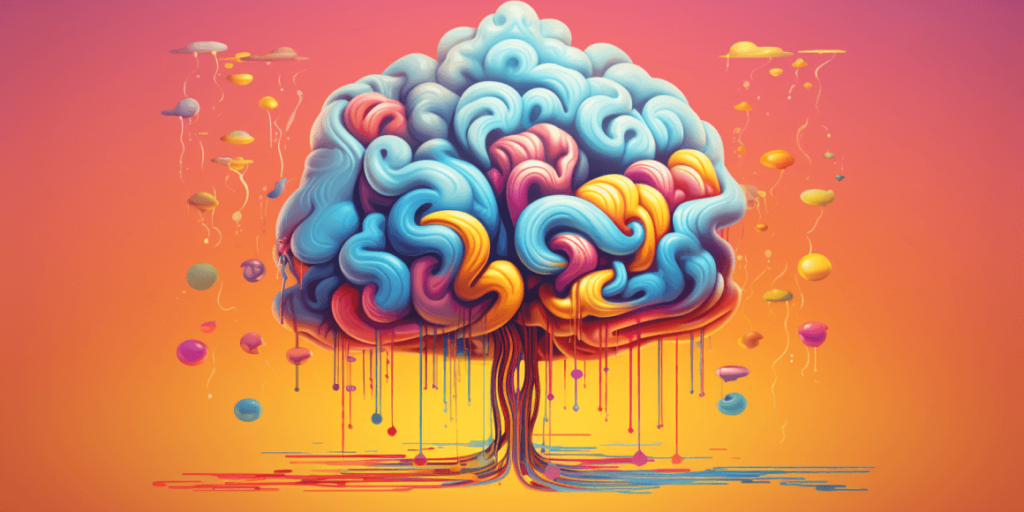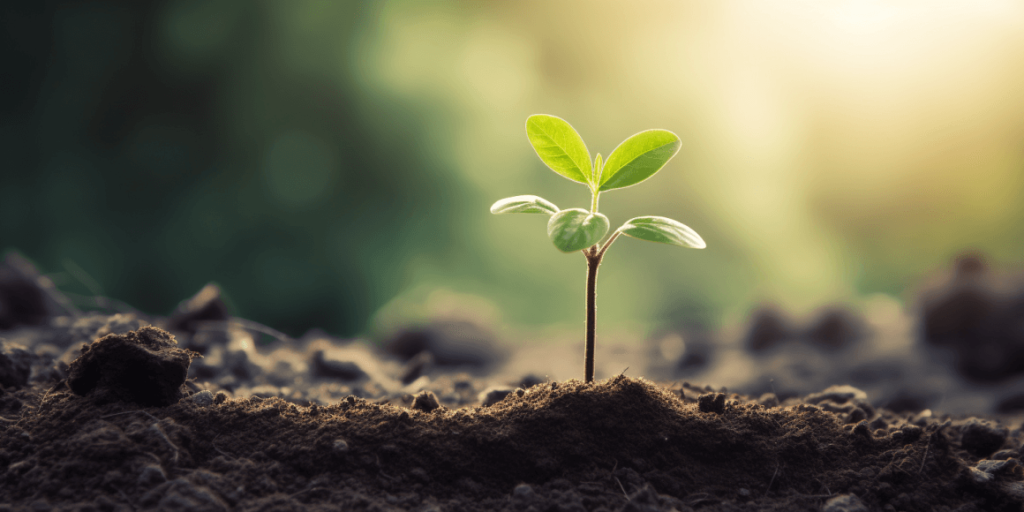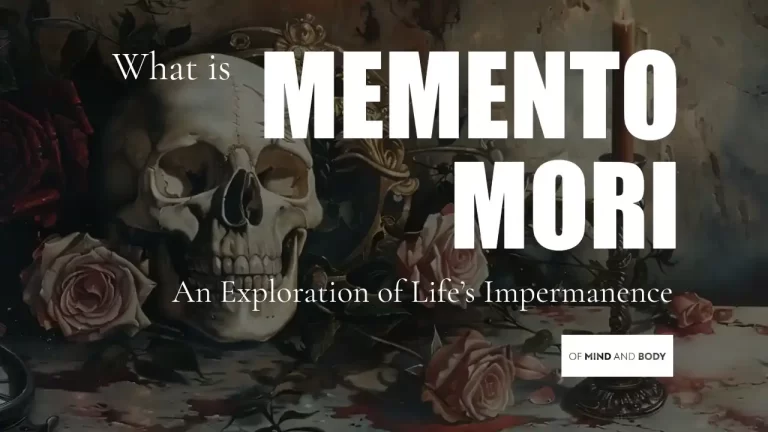
The Ever-Evolving Quest for Long-Term Happiness
Throughout our lives, we’re in a relentless pursuit of long-term happiness. We chase dreams, set goals, and buy things, all in the hope of capturing that elusive feeling of joy. But have you ever stopped to wonder why certain joys fade while others endure? Why does the excitement of a new job or relationship eventually settle into a comfortable familiarity? Let’s embark on a journey to decode these mysteries.
Why Some Joys Fade While Others Last
It’s a universal experience: the initial thrill of a new purchase or the first few months in a new city is electrifying. But as days turn into months, the novelty wears off. This isn’t a sign of ingratitude or boredom; it’s a psychological phenomenon deeply rooted in our nature.
The Science of Long-Term Happiness

The Brain’s Role in Perceiving Joy
Our brain is a marvel, constantly processing emotions, memories, and experiences. When we encounter something new and exciting, neural pathways light up, releasing a cocktail of chemicals that make us feel good. But over time, as the experience becomes familiar, the intensity of this reaction diminishes.
Chemicals and Emotions: Dopamine, Serotonin, and Oxytocin
These aren’t just fancy terms from a biology textbook. They’re the very essence of our emotional experiences. Dopamine gives us the rush of pleasure when we achieve a goal or buy something new. Serotonin stabilises our mood, promoting feelings of well-being and happiness. Oxytocin, often referred to as the ‘love hormone’, deepens our connections with others. Together, they form the trinity of our emotional well-being.
The Role of Hedonic Adaptation

The Happiness Set Point: What It Is and Why It Matters
Imagine having a happiness thermostat. Regardless of life’s highs and lows, we tend to return to a consistent level of happiness or our set point. While external events might cause temporary fluctuations, our internal system works to bring us back to this baseline.
How Hedonic Adaptation Influences Our Daily Lives
Recall the exhilaration you felt when you received that much-awaited promotion or drove home in a brand-new car. That burst of happiness seemed like it would last forever. Yet, as weeks turned into months, that initial thrill began to wane. This diminishing intensity of joy isn’t a reflection of our ingratitude or fickleness; it’s a natural outcome of hedonic adaptation. Our brains are hardwired to adapt to new circumstances, ensuring we’re always striving, always reaching for the next big thing.
Hacking Hedonic Adaptation for Sustained Well-being
But what if we could tweak this inherent tendency to our advantage? By understanding our predisposition towards hedonic adaptation, we can adopt strategies to counteract its effects. One powerful approach is cultivating a consistent practice of gratitude. Instead of always looking ahead to the next desire or achievement, we can pause and deeply appreciate what we already have. By consciously acknowledging and valuing our present blessings, we can anchor our happiness and find contentment in the now. This, combined with other well-being techniques, can help us navigate the ever-shifting sands of hedonic adaptation, ensuring we derive lasting joy from life’s many gifts.
Factors That Influence Long-Term Happiness

The Power of Relationships and Social Connections
Humans are intrinsically wired for connection and community. From the earliest days around campfires, sharing stories and experiences, to modern gatherings and celebrations, our bonds with others have always been at the heart of our existence. These interactions, whether they’re heartfelt conversations with a close friend or the shared laughter of a family dinner, infuse our lives with meaning and purpose. It’s in these moments of connection that we often find solace, understanding, and joy. The strength and depth of our relationships not only provide a safety net during challenging times but also amplify the joys of life’s highs. In essence, our social ties are the threads that weave the rich tapestry of our emotional well-being, making life not just bearable but truly fulfilling.
Personal Growth: The Unsung Hero of Sustained Joy
Recall the satisfaction of nailing that intricate recipe or the first time you played a tune on a musical instrument without missing a beat? Personal growth, manifested through mastering new skills or surmounting obstacles, infuses our lives with layers of depth and fulfilment. By regularly reflecting on and appreciating these achievements, not just the tangible assets we possess, we nurture a profound sense of well-being and joy. This conscious acknowledgement of our progress and growth anchors our happiness, making it resilient and enduring.
The Role of Purpose and Meaning in Life
Beneath the ebb and flow of our daily tasks and routines, there’s an underlying search for a deeper meaning. It’s not just about what we do, but why we do it. Whether we find this purpose in our careers, passions, or relationships, it bestows our actions with a lasting resonance, anchoring our happiness. Recognising what truly drives us is pivotal. Discovering our purpose shouldn’t be a serendipitous event; instead, it’s something we can actively ponder and nurture, ensuring our happiness is both intentional and enduring.
The Myth of Materialistic Happiness

The Temporary High of New Possessions
In our modern, consumption-centric society, it’s tempting to link happiness directly to the tangible items we acquire. The exhilaration of unveiling the latest tech or donning high-end fashion is palpable. Yet, such elation often proves fleeting, soon replaced by an itch for the newer, shinier offering on the horizon. This cycle is a classic manifestation of hedonic adaptation. It’s a sentiment we’re all familiar with, even if we haven’t always been aware of its underlying mechanics.
Beyond Materialism: The Intangible Joys
Life’s most enriching joys often aren’t found on store shelves. It’s the shared laughter with a close friend, the tranquil embrace of a silent dawn, or the deep fulfilment from aiding another. These priceless experiences weave the fabric of our enduring contentment. While such moments surpass the ephemeral delights of superficial interactions, we’re all, at times, ensnared by our inherent human tendencies. Yet, with conscious effort and focus, we have the power to rise above and truly cherish what matters.
Challenges to Maintaining Long-Term Happiness
The Modern World’s Impact on Well-being
In today’s hyper-connected era, where every second seems to buzz with digital demands and our calendars overflow, carving out moments of serenity feels like an uphill battle. The relentless pings of social media notifications, the never-ending stream of emails demanding attention, the barrage of breaking news alerts, and the cacophony of work reminders can drown out the quiet moments we so desperately need. Add to this the societal pressure of FOMO (Fear of Missing Out) and the urge to stay perpetually updated, and it’s clear why our mental landscapes often feel cluttered.
Yet, amidst this digital whirlwind, the quest for tranquillity becomes not just desirable, but essential. Whether it’s designating tech-free hours, indulging in nature walks, practising mindfulness, or simply savouring a cup of tea without the compulsion to check our phones, these pockets of peace serve as anchors. They ground us, recharge our spirits, and offer a respite from the relentless pace of modern life. Recognising and prioritising these moments is more than self-care; it’s a lifeline in our increasingly complex world.
Overcoming External Pressures and Stressors
In the whirlwind of today’s world, where work demands intertwine with household responsibilities, we’re constantly under a barrage of stressors. Yet, hidden within these daily challenges are golden opportunities to hone our resilience, adaptability, and ultimately, discover deeper happiness.
Now, let’s take a step back and ponder a thought experiment. Imagine our minds, constantly bombarded by external pressures and digital lures, being conditioned to skim over truly meaningful experiences. Instead of cherishing these moments, we’re often in a hurry to return to the dopamine-driven cycle of our devices. The rich tapestry of life gets reduced to mere blips we rush through, only to dive back into the abyss of endless scrolling and reactive outrage. It’s as if our devices are moulding us into passive spectators, zombifying our active engagement with the world.
This isn’t just a habit; it’s an addiction. The fleeting highs offered by our screens demand constant replenishment, keeping us tethered in a never-ending loop. But here’s the revelation: we have the power to break free. Recognising this digital entrapment is the first step. We must fiercely guard our mental space, that precious realm that connects us to the world’s wonders. It’s high time we reclaim our minds from entities that profit by monopolising our attention, selling it off to the highest bidder. Our consciousness, our very essence, deserves more than to be auctioned for ad revenue.
Strategies for Sustained Happiness

Mindfulness and Living in the Present
In today’s digital age, where notifications constantly vie for our attention and our schedules are packed to the brim, our minds often race between regrets of the past and worries about the future. This perpetual mental time-travel can leave us feeling disconnected and overwhelmed. Enter mindfulness. It’s not just a buzzword; it’s a practice that encourages us to immerse ourselves fully in the current moment. Imagine savouring the warmth of a cup of tea, feeling its heat seep through the mug, or truly listening to a song, catching every note and lyric. By practising mindfulness, we learn to appreciate the richness of the present, finding solace and joy in the simplest of moments. It’s like taking a mental photograph, capturing life’s experiences frame by frame.
The Art of Gratitude: More Than Just Saying Thanks
In a world that frequently underscores our deficiencies, subtly nudging us towards an insatiable desire for more, it’s easy to feel perpetually incomplete. This societal framework, often driven by consumerism and comparison, thrives on making us believe that we’re just one purchase, one achievement, or one experience away from fulfilment. It’s a cycle that feeds on our insecurities, convincing us that contentment lies in the next big thing, rather than in appreciating the present.
Gratitude, on the other hand, stands as a powerful counter-narrative. It’s not just about mouthing a ‘thank you’ when someone holds the door or sends a gift. Gratitude is an intentional act of recognising and valuing the positive aspects of life. Think of the friend who always checks in on you, the beauty of a sunset after a long day, or the taste of your favourite meal. By cultivating a gratitude mindset, we shift our focus from what’s missing in our lives to the abundance that’s already present. It’s like having a mental ledger, where instead of tallying our grievances, we count our blessings, big and small.
Setting and Achieving Personal Goals
Life without goals can feel like sailing without a compass; we might move, but there’s no clear direction. Whether it’s mastering a new skill, reading a certain number of books in a year, or aiming for a career milestone, setting goals provides purpose and structure to our lives. But it’s not just about the end result. The journey towards achieving a goal is filled with learning, challenges, and growth. Every setback faced and every obstacle overcome not only brings us closer to our goal but also enriches our character. And when we finally achieve what we set out to, the sense of accomplishment is unparalleled. It’s akin to collecting badges of honour, each representing our dedication, perseverance, and growth.
The Importance of Self-Care

Finding Time for Yourself in a Busy World
In an era where multitasking is lauded and our calendars are perpetually overbooked, moments of solitude become rare treasures. But these moments, these pockets of ‘me time‘, are more than just luxuries; they’re necessities. They serve as mental pit stops, allowing us to pause, breathe, and re-calibrate. Whether it’s a quiet morning coffee ritual, a short meditation session, or simply gazing out of the window, these moments of introspection help us reconnect with ourselves. It’s not an act of indulgence but one of self-preservation, ensuring our mental and emotional tanks are always fuelled.
Activities and Hobbies: The Unsung Heroes of Joy
In the grand tapestry of life, it’s often the simple pleasures that bring the most joy. Activities and hobbies, often sidelined in the pursuit of bigger goals, are gateways to these pleasures. Whether it’s the rhythmic strokes of a paintbrush, the thrill of scaling a mountain trail, or the immersive world of a gripping novel, these pursuits offer a respite from daily routines. They transport us to realms where we’re free from external pressures, where our souls dance to their own tunes, and where happiness is both the journey and the destination.
Building Resilience Against Life’s Ups and Downs

Embracing Challenges as Opportunities for Growth
Life, in its unpredictable glory, often throws curveballs our way. While the initial reaction might be one of dismay or frustration, a deeper perspective reveals hidden gems within these challenges. Each obstacle, each hurdle, is a lesson in disguise, waiting to be unravelled. By viewing challenges not as roadblocks but as stepping stones, we transform them into growth opportunities. It’s this shift in perspective that turns adversities into adventures, teaching us resilience and fortitude.
The Role of Positive Affirmations and Mindset
The power of the mind is both profound and unparalleled. Our thoughts, beliefs, and attitudes form the lens through which we view the world. Negative self-talk and limiting beliefs can cloud this lens, distorting our reality. Positive affirmations act as the perfect antidote. They’re like mental mantras, reinforcing our self-worth and potential. By consciously choosing optimism and coupling it with affirmations, we not only clear the fog but also illuminate our path, ensuring every step we take is one towards joy and fulfilment.
Conclusion
The Ongoing Journey to Long-Term Happiness
Life, in all its vibrant hues and shades, paints a picture that’s both beautiful and complex. Each experience, whether it’s a joyous celebration or a heart-wrenching setback, adds a unique stroke to this masterpiece. And amidst this ever-evolving canvas, the quest for happiness remains constant. It’s a journey, not a destination. While there might be moments when happiness feels like a distant star, it’s often closer than we think. It’s in the gentle hum of nature, the laughter shared with loved ones, and the quiet moments of introspection. The key is to remain open, to listen, and to reach out, for happiness often whispers its secrets to those who seek it.

Embracing Change and Growth for a Joyful Tomorrow
Change is the only constant in the ever-flowing river of life. As days turn into years, our perspectives evolve, dreams transform, and what once seemed paramount might fade into the background. This evolution is not something to be feared but celebrated. For with change comes growth, new opportunities, and fresh horizons. By welcoming change with open arms and viewing it as a catalyst for growth, we set the stage for a brighter, more fulfilling future. It’s a commitment to adapt, learn, and thrive, ensuring that as the world around us transforms, our inner world blossoms with joy, wisdom, and serenity.
Embodying the Essence of the Of Mind and Body Manifesto
In the intricate dance of life, where our minds and emotions play pivotal roles, the Of Mind and Body Manifesto offers a guiding rhythm. It encapsulates the essence of our journey towards mental equilibrium and self-awareness. Through the trinity of Mindfulness, Stoicism, and Cognitive Behavioural Therapy (CBT), we are provided with a roadmap to traverse the labyrinth of our psyche.
Mindfulness anchors us, allowing us to be present and truly experience life’s ebb and flow. Stoicism, with its timeless wisdom, equips us with the perspective to face life’s challenges with grace and poise. And CBT, with its pragmatic approach, ensures we have the tools to sculpt our thoughts, ensuring they serve us rather than hinder us.
As we reflect on the teachings and insights shared in this article, let’s remember the core tenets of the manifesto. They serve as a beacon, illuminating our path towards a deeper understanding of ourselves and our place in the cosmos. Embracing these principles is not just an act of self-improvement; it’s a commitment to a life of purpose, understanding, and profound well-being.



